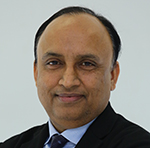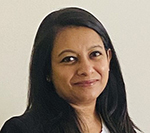Regional festivals like Bonalu in Andhra Pradesh, Ganesh Chaturthi in Maharashtra, and Onam in Kerala along with Dussehra, Diwali and Navratri, Assembly elections, reality shows, World Cup and Asia Cup are drivers for the adex growth this festive season
Brands are gearing up for the festive season and have kept aside a comparatively higher sum of ad monies to meet the ‘spiked’ premium on various ad inventories, including the high-impact sporting properties and new seasons of prominent entertainment and infotainment shows.

According to Shashank Srivastava, Senior Executive Director, Marketing and Sales, Maruti Suzuki, the automobile major’s ad budgets for the upcoming quarters are higher as compared to Q1FY24 owing to the auto category business’ cyclical nature, the commencement of Asia Cup and World Cup in Cricket and Asian Games in multi-sports category in Q2 and Q3, followed by bilateral cricket series between India-Australia and India-South Africa in Q4.
He also pointed out that since the festive quarters amount to nearly 55-60% of Maruti Suzuki’s annual ad spends owing to the fact that these quarters generally lead up to more business and therefore higher spends in 2nd half of the year (60:40 in terms of H2:H1).
“Historically, ad buys for sporting events are sold at a premium to normal ad rates of GEC programming, running as high as 50%-100% in some cases, therefore we are keeping higher budgets aligned for presence on these major sporting events. However, with overall consumer buying sentiments and propensity to purchase remaining elevated in the festive period, the ad market shall remain cluttered even at 10-15% higher ad spends in Q2 and Q3 as compared to Q1,” he opined.
As a result, the automobile major plans to leverage high-impact properties and on-ground events in addition to brand advertising campaigns to reach and engage all types of consumers- be it light TV viewers, cord-cutters or highly digitally savvy ones.
“Some mediums like OTT (CTV+mobile) and HD TV largely cater to urban audiences in top 10 cities, whereas TV (HSM + Regional) and print (Vernacular) aid in reaching both urban + rural TG,” he added.

As per Krishnarao Buddha, Senior Category Head of Marketing, Parle Products, while there is no fixed annual spending on ads, the FMCG major typically divides the yearly budget into four equal parts (25% for each quarter).
That being said, what has happened this year is that the brand has over-spent during the IPL in Q1, resulting in curtailed spending during Q2 and Q3, but ad spends patterns will return to normalcy or even higher by the end of Q3 or in Q4 of FY24.
“We see approximately 35-40% of our sales coming in from the festive period, beginning with Onam. Our range of gifting solutions helps us have a good emotional connection with our consumers. For example, in certain segregated markets like Bengal and Karnataka which are big on Dussehra, these gift packs are placed on shelves during the Diwali period, largely, followed by Christmas, which are two of our biggest inflection points for gifting solutions,” he said.
While June, July, August and September are particularly good periods for Parle Products to activate all of its campaigns, the brand in all likelihood lies low during the peak season of festive times, because of the extreme clutter and long-term deals (inventories at a low premium) with broadcasters, unlike seasonal categories such as durables, electronics, e-commerce, paints, etc. which activate themselves largely during festive times and therefore don’t mind getting ad inventories at high premiums.

According to Rajeev Jain, SVP- Corporate Marketing, DS Group, looking at the relevance of the festive period, categories like spices, chocolates, confectionery etc. will see an upped ad budget on the grounds of increased consumption, but considering the highly cluttered environment during such times, the group generally avoids advertising certain brands or product categories.
Similar to Maruti Suzuki, DS Group also is likely to spend big on digital and traditional media along with on-ground activations, during occasions like Dandia, Durga Puja, Ganesh Chaturthi, etc. since experiential marketing or even live streaming of events play a significant role in modern marketing strategies.
DS Group believes that with positive macroeconomic trends, higher growth consumption, improved rural demand, and moderation in inflation, the FMCG industry, which contributes nearly 30% of the total ad spend and nearly 40% in digital advertising, will witness positive growth in the coming quarters.
“In the first 6 months of this calendar year, the growth in food and beverage industry ad spend has been above 20%. With improvement in economic parameters and considering the high activity period ahead due to ICC world cup cricket and festival season, there can be a substantial increase in ad spending in the period Sept-Dec’23. Of this, most of the digital ad spend is on online video followed by social media,” he added.
Upon being questioned as to whether he foresees the adex growing in double digits this year, Parle Product’s Rao replied that he is 100% positive on the same since what is coinciding with the festive season is the World Cup which is going to contribute a big chunk to the entire adex, so much so that it can go 20-25% extra during the festive period.
Similarly, Maruti Suzuki’s Srivastava also shared the viewpoint that since the adex growth rates in India closely follow the nominal GDP growth rates, this year’s adex is projected to grow around 16-19%.
“Last year Q2(JAS) adex growth rate was 82% and Q3 (OND) growth rate was 24%. A similar trend is observed in past years. Hence, extrapolating the trend, we can expect above-average growth rates, around 25-30%, in this year’ JAS and OND Quarters. In fact, since Auto as a category contributes around 8-9% to overall Adex in the country, this year too the category will be driving major spends around 2nd half of CY23,” he added.

Donning the media agency player’s hat on the current build-up to the festive season, Niti Kumar, COO, Starcom, stated there has been a steady FMCG spending since Q1FY24 and that accompanying the same is a pickup in categories such as retail, QSR, beverages and automobiles, mostly on the back of launches and new products coming in.
“With a mid-November Diwali period, we will see a slightly later pick up in pure play festive spends. Also, since there are many impact properties like cricket and reality shows which will be telecasted in this period, these properties would help drive some spends in the last two quarters of the year, as is typically seen in previous years as well,” she added.

As per Srinivas Rao, Chief Investment Officer, Wavemaker, FMCGs, Auto, BFSI, Retail and Real Estate are some of the categories that have increased their spends this time around. In fact, the case in point being true for most categories, the incremental ad spending in Q1FY24 is a result of the brands’ strategy to put their might behind advertising to reap the benefits upfront since the beginning of a new fiscal year.
However, for various other brands, it is more about keeping an eye on the key festive period, increasing the spends at an overall level and waiting for the opportune time to start upping spends.
Following Q1FY24 are Q2 and Q3 which are loaded with some amazingly big opportunities coming up – Asia Cup being scheduled in Q2 and that too with 2-3 India Vs Pak matches likely to take place and World Cup taking place in the country in the third quarter. Apart from this, there would be other large and key impact opportunities like KBC, Bigg Boss etc. which will also be scheduled during this period, he stated.
“A lot of advertisers, build their campaigns on the euphoria surrounding these properties and seeing this, we estimate these two quarters to be robust both from spends and spend allocation perspective,” he added.
Commenting on this year’s festive adex, he pointed out that although the festive season always has around 5-10% higher traction than other months, this year the festive adex is likely to hover in the low double digits keeping in mind the opportunities available.

In the lens of Aditi Mishra, CEO, Lodestar UM, there has been a rise in premium-oriented categories in Q1FY24, owing to their relative insulation from inflationary forces, for example, luxury cars. While BFSI and Real Estate sectors have displayed growth, several new-age categories faced a slowdown due to global economic challenges and funding constraints, she stated.
That being said, many categories are focussed on the festive period which has already kick-started in certain regions of the country. In fact, regional festivals like Bonalu in Andhra Pradesh, Ganesh Chaturthi in Maharashtra, and Onam in Kerala will drive heightened regional advertising, especially in categories like home, durables, auto, jewellery and real estate, and the same is likely to reflect in the Q3 spurt across brands adding up to attracting substantial attention from brands aiming to leverage the impact of the forthcoming World Cup, she added.
“For Q2 and Q3 of FY24, festivals will be the major driver of media investments, including regional festivals like Bonalu, Onam, Ganesh Chaturthi, Durga Puja, Navratri, Dussehra, and Diwali. Cricket events like the Asia Cup and ICC World Cup, along with India vs. Australia series, and the upcoming English Premier League, will trigger heavy-duty content and media investments. Video formats will continue to hold sway, with TV continuing to play a pivotal role. Particularly, prominent reality shows like Khatron Ki Khiladi, India’s Got Talent, KBC, Bigg Boss, Masterchef India, and The Shark Tank will contribute to this trend,” she opined.
On the other hand, political events like elections in Rajasthan, MP, Chattisgarh, and Mizoram leading up to the general elections in 2024 will also influence ad spends across platforms in her views.
Similarly, Lodestar UM’s Mishra also shared the viewpoint that this year’s adex growth in the second half of 2023 is expected to be higher compared to the previous year, as the earlier half has been relatively muted in terms of advertiser expression and that quarter two and three are anticipated to open up for media investments, particularly due to cricket events like the Asia Cup and World Cup.
“Investments during Q2 and Q3 may end up flat or higher compared to the previous year, aided by the spread of Dussehra and Diwali over two months, allowing for better planning and efficient investment across brands,” she added.




































